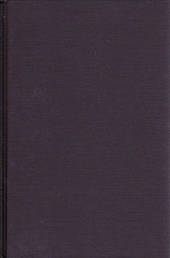
|
Postcolonial Liberalism
Hardback
Main Details
| Title |
Postcolonial Liberalism
|
| Authors and Contributors |
By (author) Duncan Ivison
|
| Physical Properties |
| Format:Hardback | | Pages:224 | | Dimensions(mm): Height 238,Width 160 |
|
| Category/Genre | Social and political philosophy |
|---|
| ISBN/Barcode |
9780521820646
|
| Classifications | Dewey:320.51 |
|---|
| Audience | | Professional & Vocational | | Tertiary Education (US: College) | |
|---|
|
Publishing Details |
| Publisher |
Cambridge University Press
|
| Imprint |
Cambridge University Press
|
| Publication Date |
26 November 2002 |
| Publication Country |
United Kingdom
|
Description
Postcolonial Liberalism presents a compelling account of the challenges to liberal political theory by claims to cultural and political autonomy and land rights made by indigenous peoples today. It also confronts the sensitive issue of how liberalism has been used to justify and legitimate colonialism. Ivison argues that there is a pressing need to re-shape liberal thought to become more receptive to indigenous aspirations and modes of being. What is distinctive about the book is the middle way it charts between separatism, on the one hand, and assimilation, on the other. These two options present a false dichotomy as to what might constitute a genuinely postcolonial liberal society. In defending this ideal, the book addresses important recent debates over the nature of public reason, justice in multicultural and multinational societies, collective responsibility for the past, and clashes between individual and group rights.
Author Biography
Duncan Ivison teaches in the Department of Philosophy, University of Sydney. He is the author of The Self at Liberty (1997) and co-editor of Political Theory and the Rights of Indigenous Peoples (2000).
Reviews"In Postcolonial Liberalism Duncan Ivison explores the challenges to liberal understandings of justice, citizenship, and democracy posed by the situation and the demands of indigenous peoples in contemporary democracies. Weaving together discussions of theorists as disparate as Rawls and Habermas on the one hand and Foucault and Said on the other, Ivison argues for a version of liberal theory that is pluralistic, open, and sensitive to the claims of local contexts but that still aspires to principled generality. Displaying a mastery of a remarkably wide range of works, Ivison produces an analysis that is subtle and sophisticated. He illustrates in his own discussions the kind of open-minded listening to others that he advocates. This is a distinguished contribution to the literature of contemporary political theory." Jury Report, CPSA C.B. Macpherson Award
|